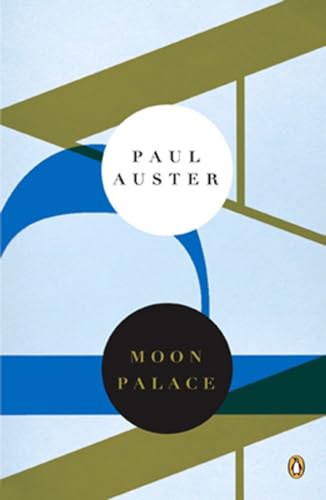Contemporary American Fiction: Moon Palace
The Moon Palace is a luxurious all-inclusive resort located in the heart of Cancun, Mexico. Known for its stunning beachfront location, world-class amenities, and impeccable service, the Moon Palace offers a truly unforgettable vacation experience for guests of all ages. Whether you’re looking to relax and unwind on the pristine white sand beaches, indulge in gourmet dining at one of the resort’s many restaurants, or partake in exciting activities such as water sports, golf, or spa treatments, the Moon Palace has something for everyone. Come experience the magic of the Moon Palace and create lasting memories that will be cherished for a lifetime.

Moon Palace Plot Summary
Moon Palace is a novel written by American author Paul Auster, first published in 1989. The story follows the life of Marco Stanley Fogg, a young man who finds himself on a journey of self-discovery and redemption after a series of traumatic experiences. The novel unfolds in a non-linear fashion, with various timelines and interconnected plot lines coming together to form a complex and rich narrative.
The novel begins with Marco Stanley Fogg, a recent college graduate, working as a live-in caretaker for an eccentric old man named Thomas Effing. As Marco learns more about Effing’s past, he becomes deeply intrigued by the man’s mysterious life story. Effing reveals that he was once a wealthy man who lost everything during the Great Depression, and that he has spent the rest of his life searching for his lost love, Kitty Wu.
Effing convinces Marco to help him in his quest to find Kitty Wu, and the two set out on a journey across America. Along the way, Marco encounters a series of strange and seemingly random events that challenge his beliefs and force him to confront his own insecurities and fears. As they travel, Marco begins to see patterns and connections between Effing’s past and his own life, leading him to question the nature of reality and his place in the world.
As the novel progresses, the reader is introduced to several key characters who play important roles in Marco’s journey. There is Maria, a beautiful and enigmatic woman who captures Marco’s heart and leads him to question his ability to love and be loved. There is also Zimmer, a fellow college graduate and friend of Marco’s who becomes a central figure in the novel’s exploration of friendship, loyalty, and betrayal.
As Marco delves deeper into Effing’s past, he discovers that the old man’s life is intertwined with his own in surprising and profound ways. Effing’s search for Kitty Wu becomes a metaphor for Marco’s own search for meaning and purpose in his life, and the two men’s parallel journeys lead them to unexpected revelations and epiphanies.
Throughout the novel, Auster weaves together themes of love, loss, identity, and the search for truth. The narrative is filled with literary allusions, historical references, and philosophical musings that add depth and complexity to the story. Auster’s prose is lyrical and evocative, drawing the reader into a world that is both familiar and strange, where the boundaries between reality and fiction blur and the line between past and present becomes fluid.
As the novel nears its conclusion, Marco is forced to confront the ghosts of his past and make difficult choices about his future. He must decide whether to continue on the path he has been following or to forge a new path for himself, one that is more authentic and true to his own desires and aspirations.
In the end, Marco’s journey leads him to a deeper understanding of himself and the world around him. He realizes that the search for truth and meaning is not always straightforward or easy, but that it is an essential part of the human experience. Moon Palace is a novel that challenges its readers to think deeply about the nature of reality and the complexities of human relationships, and it is a testament to the power of storytelling to illuminate the mysteries of life.
Moon Palace Key Takeaway
One key takeaway from the book “Moon Palace” by Paul Auster is the idea of transformation and self-discovery through adversity. The protagonist, Marco Stanley Fogg, undergoes a series of trials and challenges in his life that force him to confront his past, his identity, and his relationships.
As Marco struggles with loss, abandonment, and uncertainty, he embarks on a journey of self-discovery that leads him to new insights and personal growth. Through his experiences, Marco learns to let go of the past and embrace the present moment, finding meaning and purpose in the midst of chaos and uncertainty.
Ultimately, “Moon Palace” is a testament to the resilience of the human spirit and the transformative power of facing challenges head-on. It serves as a reminder that even in the face of adversity, there is always the opportunity for growth, change, and renewal.
Conclusion
In the conclusion of “Moon Palace” by Paul Auster, the protagonist Marco Stanley Fogg finds himself on a journey of self-discovery and enlightenment as he navigates the challenges and mysteries of life. Through a series of unexpected events and encounters, Marco is forced to confront his past, his identity, and his place in the world.
Overall, “Moon Palace” is a thought-provoking and beautifully written novel that explores themes of fate, identity, and the search for meaning in a chaotic world. Auster’s writing is poetic and nuanced, drawing readers into the complex inner workings of his characters’ minds.
Readers who enjoy introspective and philosophical novels will appreciate “Moon Palace.” Fans of Auster’s other works, such as “The New York Trilogy” and “The Brooklyn Follies,” will also likely enjoy this book. Additionally, those who appreciate literary fiction with a touch of magical realism will find much to love in this novel.
In summary, “Moon Palace” is a captivating and immersive read that will leave readers pondering the deeper questions of life long after they have finished the book.

No responses yet